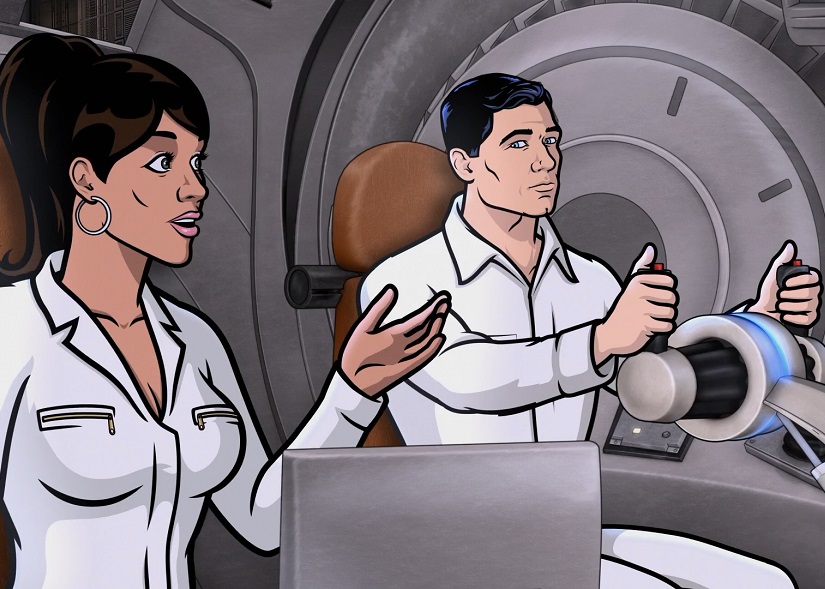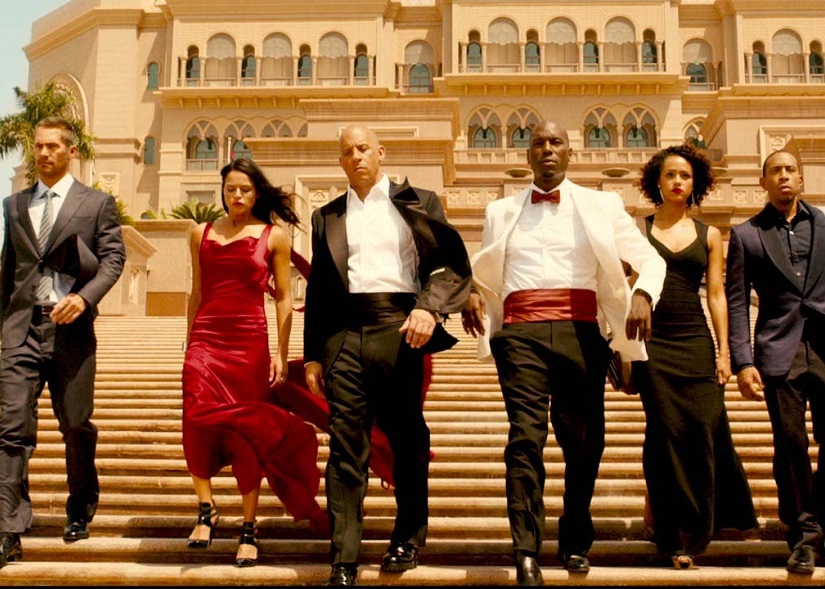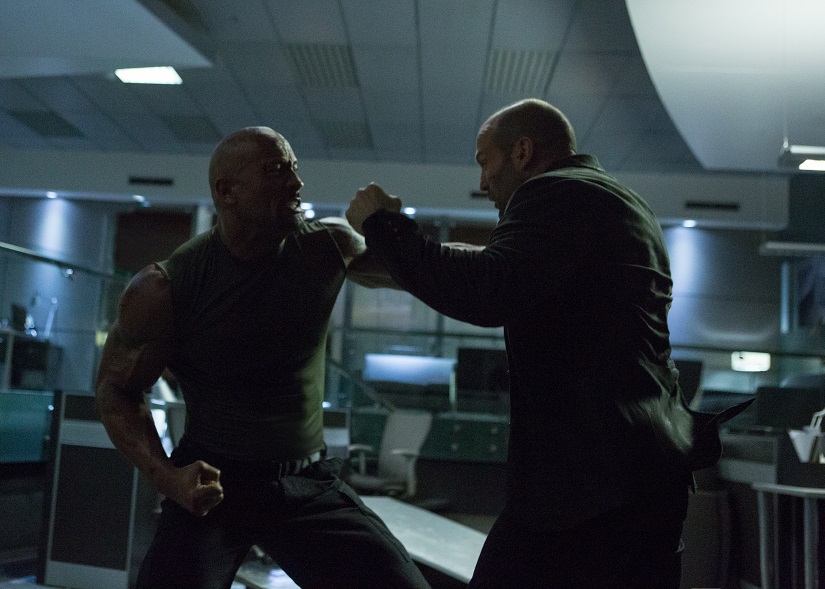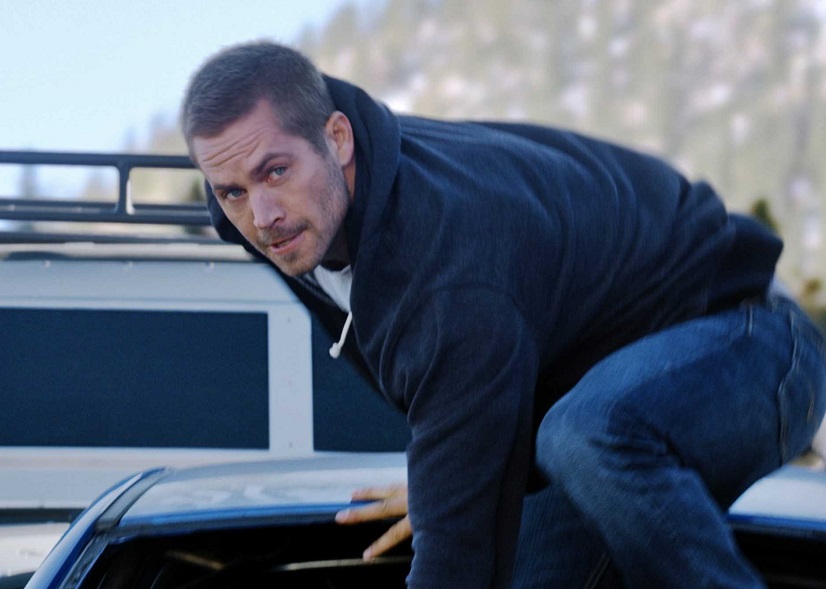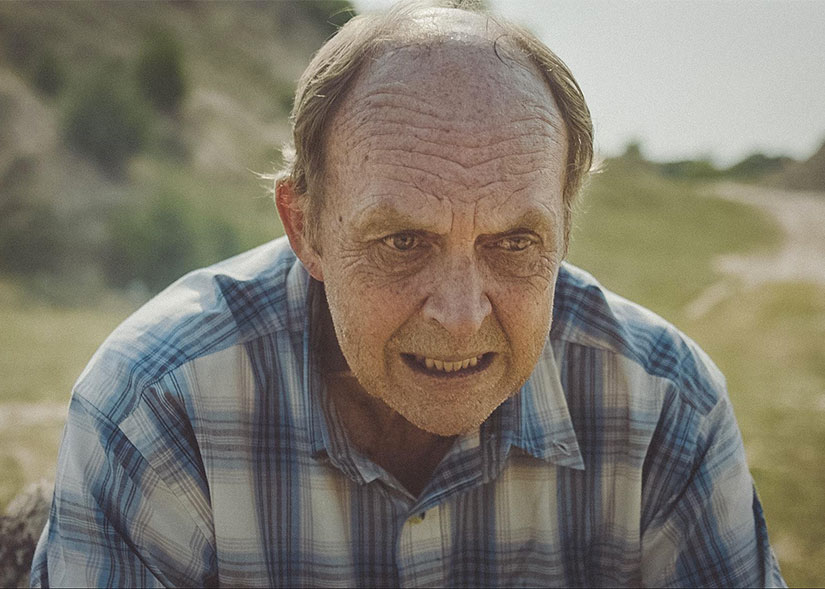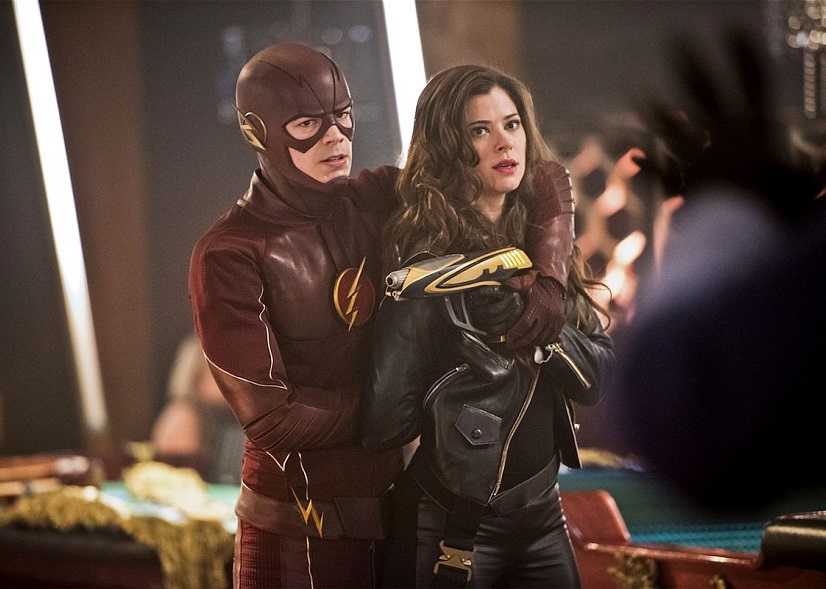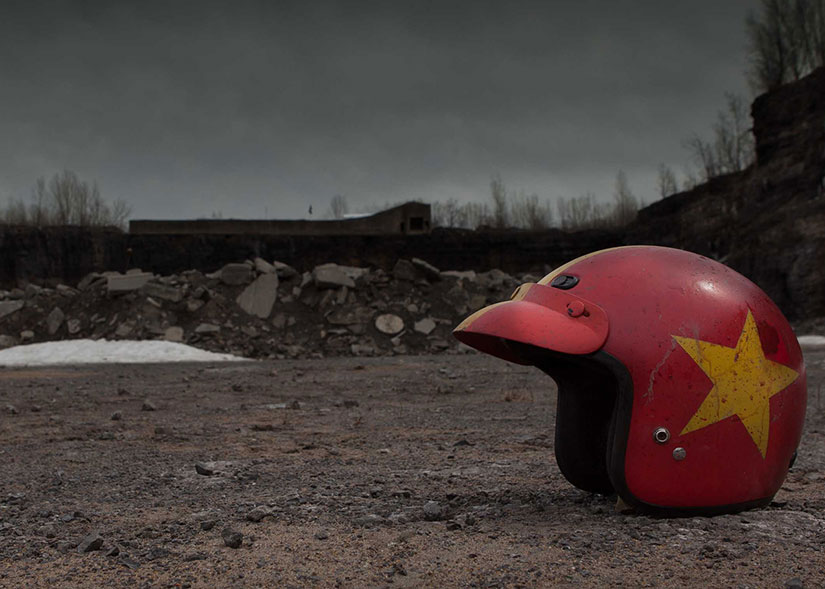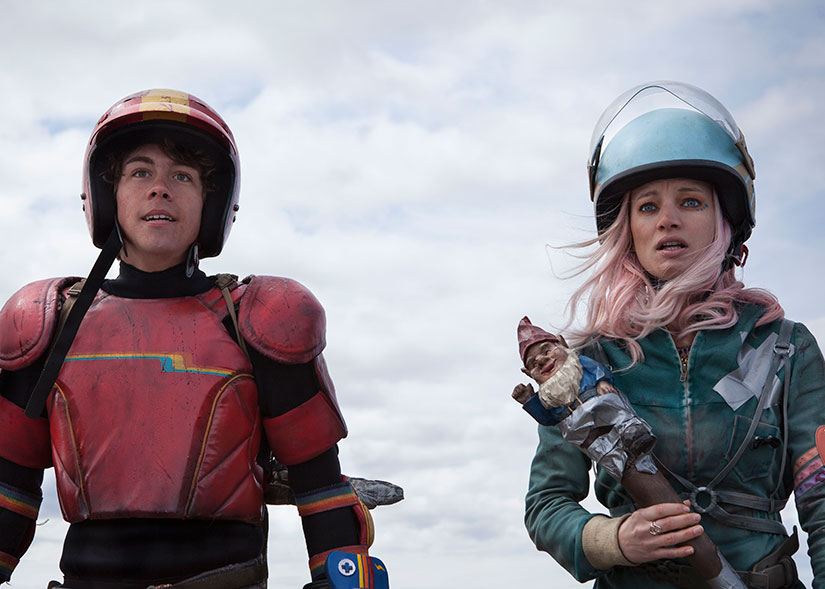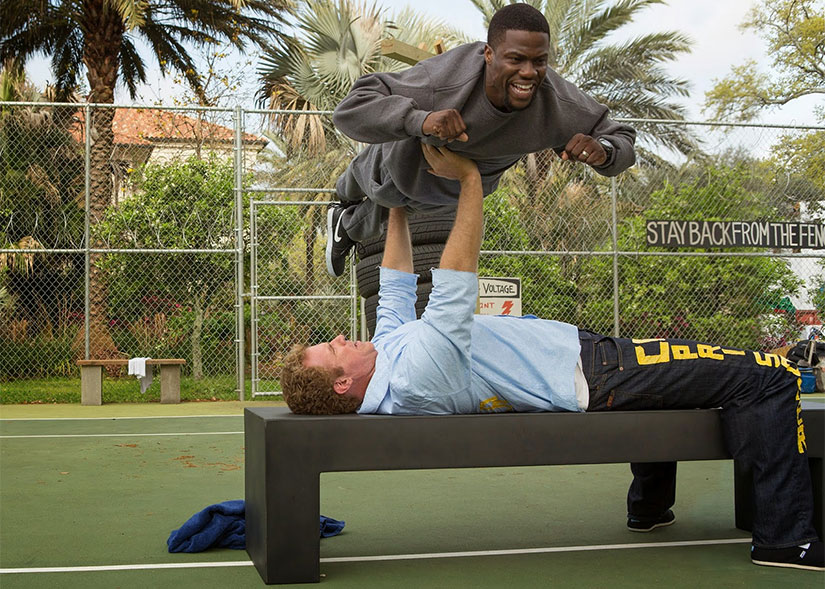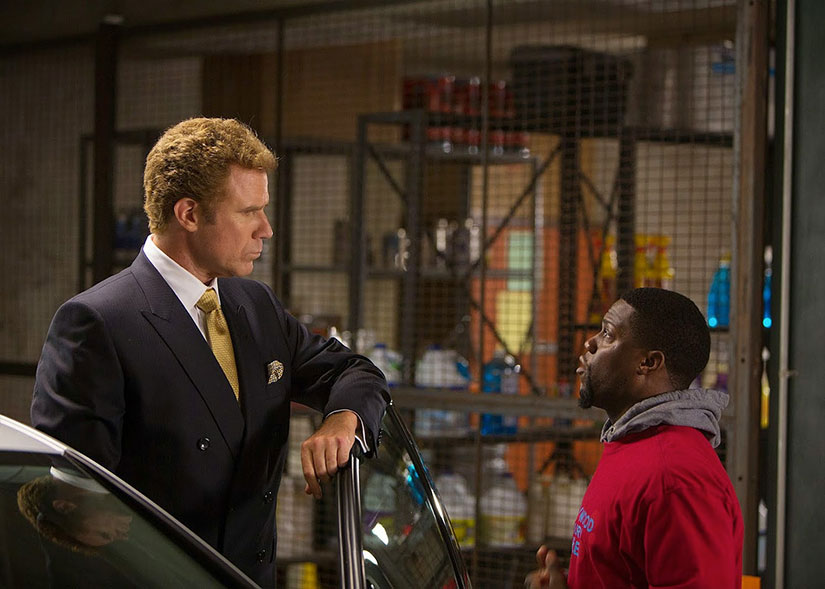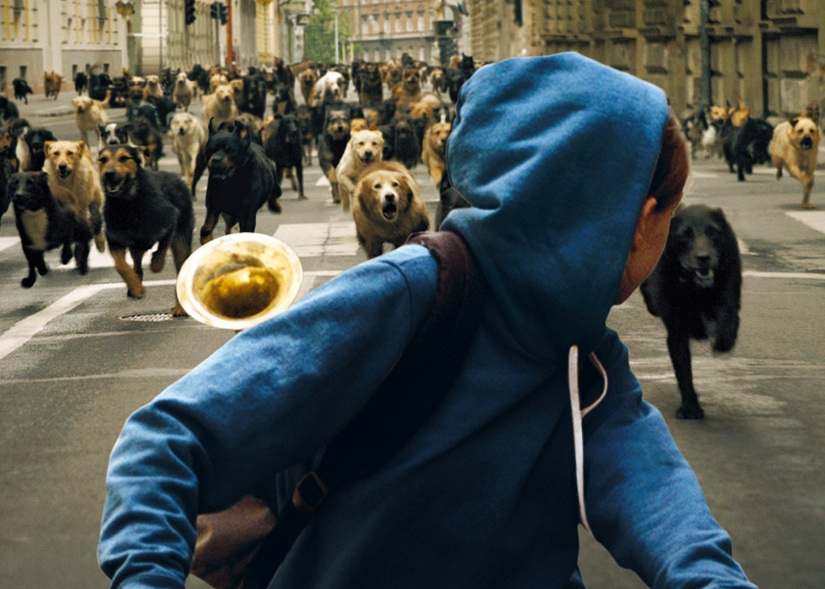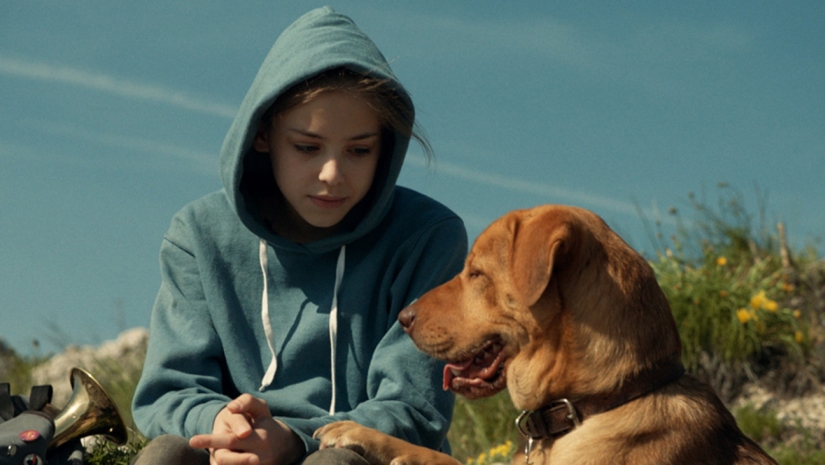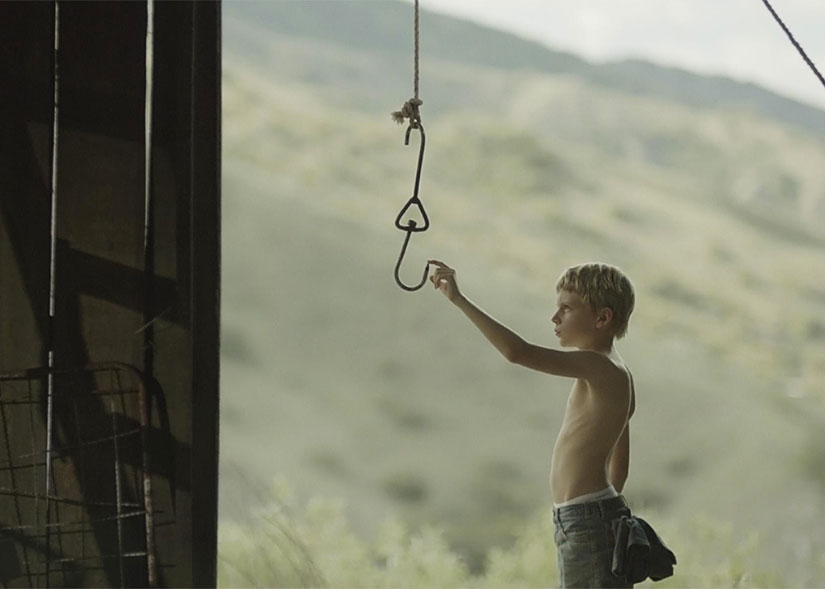[This Week In TV] Archer; Community; New Girl
This Week in TV is a weekly feature reviewing the best, worst and most interesting episodes of television from the past seven days. The plan is to cover a wide variety of shows, but not always the same ones each week, so let us know in the comments which ones you’d particularly like to read about. This week sees Archer conclude its season with a drastic voyage, while Chang becomes an actor on Community and New Girl returns from its hiatus with Schmidt's mother in tow.
Furious 7
"Though this be madness, yet there is method in't." - Polonius, Hamlet, Scene 2 Act 2
The seventh entry in the meat 'n' metal saga that is Fast & Furious ups the silliness, downs the dialogue, and produces what is sure to be one of the most ridiculously entertaining movies of the year. Mad Max is going to have a hell of a time crossing the line as 2015's best car movie after this.
This time around, Dominic Toretto (Vin Diesel) and his crew are threatened by the vengeful brother of the villain from the previous movie and need to find a Macguffiny piece of tracking technology allowing them to get the drop on him before he kills again. That's it. The entire plot. The Fast & Furious movies have always been exceptional on the road, but tend to stall once the dialogue kicks in. Furious 7 keeps the pontificating to a minimum, piling on gargantuan set-pieces and escalating the Tom & Jerry lunacy, saving speeches about family for brief intermissions where the audience can catch their breath before starting all over again. It's madness, but there's method in it, and by golly, does it ever result in a thrilling ride.
[youtube id="Skpu5HaVkOc"]
Furious 7
Director: James Wan
Rating: R
Release Date: April 3, 2015
Furious 7 sets out its tone from the very first scene, in which Deckard Shaw (Jason Statham) visits his comatose brother in hospital and leaves the place in a somewhat messier state than he found it. It's joyfully silly and shows a total disregard for logic, captured in a bravura tracking shot by new director, James Wan, who proves a highly capable replacement for the outgoing Justin Lin. Give a moment's thought to the movie and it falls apart in front of your eyes, yet there isn't a single second in which everyone involved isn't fully aware and steering into the idea, pounding viewers' scepticism until they've no choice but to chill out and enjoy the ride. Even a piece of product placement brazen enough to make James Bond would baulk becomes funny by merit of how completely and knowingly shameless it is.
Once you accept its terms, it's hard not to fall in love with its entertainment-before-logic approach. Cars fly between Abu Dhabi skyscrapers, take parachute jumps out of aeroplanes, go on off-road jaunts through forests down the side of an Azeri mountain, and much more besides. Statham shows up at virtually every encounter with no explanation of how or why, other than it being a lot more fun to have him there. Those lunkspolitation match-up battles the Expendables movies promised and failed to deliver? Here, you get Statham vs The Rock, Michelle Rodriguez vs Ronda Rousey, Paul Walker vs Tony Jaa (twice), Statham vs Vin Diesel, and The Rock vs, umm, a predator drone. Wan's shakycam and rapidfire editing can be frustrating, but maintains enough coherence not to lose the geography or physical impact of the fights.
By this point, the main cast have been together long enough to share a chemistry which feels like a genuine friendship, adding sincerity to Toretto's proclamations of his crew as family. He's the same gravel-voiced, straight-faced man-sausage as always, but allows just enough self-effacing irony and warmth to peek through the facade to ably function as the centre of the Furious universe. Tyrese Gibson and Ludacris make some wonderfully silly comic relief double-act, while the disgracefully gorgeous Nathalie Emmanuel - given an Ursula Andress moment in a tiny bikini, because why not - adds snarky Brit girl charm to what is otherwise an stew boiling over with macho posturing - even, or perhaps especially, from Michelle Rodriguez.
The downside is that with such an expansive cast, several of them have to be sidelined, which means Jordana Brewster is left fretting at home, while Sung Kang's Han is offed with barely a thought. Most tragic is the restriction of The Rock/Dwayne Johnson's Detective Hobbs to little more than cameos at the very beginning and very end of the movie, especially since, as you'd expect, his barnstorming charisma and comic timing steal every one of the scenes in which he appears. Hobb's heavily implied infatuation with Diesel's Toretto continues apace, and were it not for the presence of his young daughter in an early hospital scene, you get the feeling the two would be getting down to some earth-shattering, jello-abusing, sweaty bro-love right then and there.
Of course, it's impossible not to discuss the impact of Paul Walker's tragic real-life death on the movie. I've never been especially complimentary towards Walker's abilities as an actor in the past, having previously referred to his on-screen presence as an unusually attractive piece of cardboard, but he's settled into the role comfortably enough to deliver an easy-going and likeable performance even in the few moments he's not in a punch-up or looking stern from behind a steering wheel. His character remains the least lively of the main cast, but the subplot about needing to get Brian home to his real family is made more affecting by Walker's passing, even if his scenes with Brewster are undercut by some dreadful, sub-telenovela standard scoring. Fortunately, it all comes together in the movie's final scene, which functions as a heartful and moving farewell to the character and tribute to the actor, symbolised with surprising grace and delicacy in the closing shot. You wouldn't expect a Fast & Furious movie to reduce people to tears, yet no fewer than three women around me were visibly weeping when the lights came up.
That poignancy adds just a little depth to a movie whose otherwise sole focus is loud, smashy entertainment, and I'm sure the eternally blockbuster-friendly Walker wouldn't have wanted it any other way. Furious 7 is not without its flaws, coming in about ten minutes too long and with even the most astonishing action sequences a little too prolonged not to feel a little wearying by the end. Yet those sequences truly are astonishing, each sufficiently distinct in look and theme to avoid repetition and packed with ribald humour and jaw-droppingly insane stuntwork.
Those with a predisposition towards political correctness should turn their noses away now: Rodriguez's Lettie is given as much depth as any other character, but the male gaze is at full strength here, albeit never quite sure whether the cars or the booty are more worthy of worship. You can almost hear Vin Diesel and Paul Walker's trousers rending in a scene where they happen upon a rare supercar, and when Diesel lifts it up for Walker to take a more intimate look at its engine, you get the feeling this is the threesome the two of them have really been waiting for. Diesel's two hands probably weren't all that was holding the car up, if you know what I'm saying. It's hard to get righteous when the movie's so completely aware of its own absurdity, however, and while perhaps slightly more explicit, the T&A never feels quite as predatory or trashy as Michael Bay at his leering worst. Fast & Furious 7's sole aim is delivering a hyper-concentrated dose of blockbuster entertainment, at which it succeeds magnificently.
Uncle John
Uncle John
Director: Steven Piet
Rating: N/A
Release Date: March 16, 2015 (SXSW)
Anxiety and tension can be a film's greatest assets when used appropriately. Sure, horror films may rely on supernatural entities, quick scares, and gore to frighten audiences, but nothing is more harrowing than watching the slow build of something sinister you're not quite sure of, and the anxiety over waiting for it to reach a head. The best psychological thrillers can take the slow build and create an unease that we can all relate to, given the genre's tendency to stay grounded in its narrative and characters. At the same time, we don't always find ourselves in scenarios where a mysterious disappearance affects us directly. Rather, we find our tension and anxiety within our interactions with everyday people, especially in regards to romantic pursuits.
Uncle John takes the elements of harboring a secret in a small town and the tension caused by a budding romance between a manager and her employee to create a hybrid psychological thriller/indie romance that, despite my inadequate summary of the film's tone, works extremely soundly and shows that combining two vastly differing genres into one film can be done successfully.
[youtube id="N9h7y-kPGs0"]
A small-tight knight community in a small Illinois town is stunned when a man known for his rambunctious past goes missing following a round of personal apologies as a means of atonement. Unbeknownst to everybody but the missing man's brother, Danny (Ronnie Gene Blevins), the anonymous and unthreatening John (John Ashton) has everything to do with the disappearance, but his calm, friendly demeanor hides his dark secrets. Meanwhile, a graphic designer in Chicago named Ben (Alex Moffat) finds himself facing his own tension when a new project manager, Kate (Jenna Lyng), is assigned to work with him. While their interactions are cordial, they soon begin to grow closer to one another, despite the social scrutiny of workplace relationships. Each narrative converges into one when Ben pays John a visit as both men must overcome their respective tension to deal with the secrets they hide.
As I mentioned in the introduction, I'm doing a terrible job at summarizing the film, because while the overall sweeping dual narratives are enough to entice curious viewers, the true strength of the film is found in the nuances of the direction, tone, and performances. It's hard to simply capture those feelings into words without spoiling the film, especially in one like Uncle John where the payoff is not only satisfying, it leads viewers down a path of character analysis in which they try to decipher each characters' true natures and intentions.
Honestly, I can try as hard as I can to best praise Uncle John, but it truly is one of those remarkable films where you'll enjoy it more going into it blind. Uncle John is perfect for cinephiles that love to dissect and analyze every aspect of a film, but also has enough appeal to attract casual viewers. One thing is clear: Uncle John is the type of film you'll enjoy debating and discussing with other film fanatics after multiple viewings. Isn't that what the medium is all about?
[This Week In TV] The Flash; Arrow; Agents Of SHIELD
This Week in TV is a weekly feature reviewing the best, worst and most interesting episodes of television from the past seven days. The plan is to cover a wide variety of shows, but not always the same ones each week, so let us know in the comments which ones you’d particularly like to read about. This week takes on a comic book theme, with The Flash heading back in time, Oliver Queen suffering an identity crisis in Arrow, and, um, SHIELD suffering an identity crisis in Agents Of SHIELD.
Turbo Kid
Turbo Kid
Directors: Anouk Whissell, François Simard, Yoann-Karl Whissell (RKSS)
Rating: N/A
Release Date: March 17, 2015 (SXSW)
Nostalgia is a lovely thing, especially when it comes to art. It adds that little extra something that allows us to connect to, love, and appreciate it just a bit more. When done improperly, however, nostalgia can handicap and hold back works of art that aren't strong enough to stand on their own. Turbo Kid relies on the nostalgia of various '80s films and genres, but treats the time period with reverence while not allowing its attention to certain stylistic choices to negatively affect the overall film.
Turbo Kid, then, fits very well in the modern landscape of indie films where equal focus is given to both production value/quality and dedication to a style/tone that all but guarantee it will become your next favorite cult film. Even if you're unfamiliar with or not a fan of '80s films, Turbo Kid has enough energy and infectious charm to assure you'll fall in love with it.
[youtube id="nh23-rQUi5U"]
In a dystopian alternate 1997, the world has been ravaged by some type of apocalypse, leaving behind a barren wasteland where everything goes. The Kid (Munro Chambers) is an orphan traversing across the wasteland for comic books and '80s trinkets to collect and trade for water (which is a rare commodity in the world). During one of his treks, he meets Apple (Laurence Leboeuf), an enigmatic girl who quickly deems The Kid her new best friend by attaching a tracking device on him. While he's initially annoyed by her presence, the Kid eventually becomes attached to her, especially after they're attacked by a biker gang run by the vicious Zeus (Michael Ironside), who himself pits captives against one another in deathmatches where the loser has their blood cleansed and purified for water.
While the Kid is able to escape, Apple finds herself captured by Zeus' henchmen. During the escape, the Kid comes across a ship implied to be the hero of his comic book's, complete with a power suit that gives him powers. Teaming up with Frederic (Aaron Jeffery), a vigilante known for his arm-wrestling prowess, they're able to rescue Apple from Zeus' clutches. However, by doing so, they draw the ire of Zeus' full attention.
While Turbo Kid is set in 1997, the film's presentation makes it seem as if it was shot during the '80s, complete with a time-appropriate score and sound effects, bright-colored costume palettes to contrast against the drab and gray of the wasteland, and a charm that befits '80s films. The film draws from various post-apocalyptic '80s films like BMX Bandits and The Road Warrior in terms of scope and style, especially with the practical visual effects and level of gore that befits the campiest of '80s films; however, it also possesses the innocent charm and hopeful optimism that helped define '80s teenage protagonists.
Beyond the '80s-inspired aesthetic, Turbo Kid is just an amazingly fun film. It's fun to see the Kid express his awkwardness over getting attention from a pretty girl, just for somebody to get their head decapitated completely with a copious amount of blood gushing out just a few minutes later. Again, while I do believe there's something in Turbo Kid for everyone, there will be those who just don't enjoy primal fun qualities like practical blood effects, synth-heavy scores, and a loose plot that is both serious in delivery, but doesn't take itself seriously at the same time.
Give Turbo Kid a chance, and I can guarantee it'll become the film you try to rally all of your friends to watch.
Get Hard
By now, I'm sure most of you reading this are aware of the controversy surrounding Get Hard and its less than savory content. For those untrustworthy of the media and wary of overly-sensitive audiences at SXSW, I can say Get Hard is full of tasteless homophobic and racist jokes that feel completely out of touch and out of place in the contemporary climate of heightened social awareness.
Despite the uproar over the mistreatment (or perceived mistreatment, as some might argue) of the race and sexuality topics, we all know comedies are constantly attempting to push the envelope for laughs. Is this an excuse for the one-note joke that fuels the film's plot, or some of the machismo "jokes" that portray homosexuality as some disgusting counterculture? Not at all. However, without the controversy lies a comedy begging for laughs that, ultimately, it never delivers.
[youtube id="l5lojEIitNw"]
Get Hard
Director: Etan Cohen
Rating: R
Release Date: March 27, 2015
James King (Will Ferrell) is a rich businessman convicted of tax evasion and sentenced to a 10-year prison sentence despite never committing any wrongdoing. Worried that he won't survive prison, he turns to the owner of the carwash he frequents, Darnell Lewis (Kevin Hart), for help after he wrongfully assumes the latter has spent time in prison. Sensing an opportunity to make easy money, Darnell goes along with the facade, entangling James in various hijinks in an attempt to make James hard. Such scenarios include turning James' mansion into a makeshift maximum security prison, complete with James' maids and workers taking on roles as prison guards, Darnell introducing James to his gangbanger cousin and his crew, and a sexual encounter with another man at a gay bar.
The film's title, Get Hard, is enough to determine whether or not you'd enjoy this film. Does the sexual tension behind the title make you laugh at the thought of Kevin Hart attempting to help Will Ferrel "get hard"? If so, this film is for you. And really, what was to be expected of a film with such an obvious joke truly summarizing the film's tone and direction? It's one thing to be so obtuse with a film's subject matter -- it's another thing to take the premise and truly satirize it and provide conscientious, thoughtful commentary on such issues like racism, class disparity, and gay-straight relations. Instead, Get Hard goes for the obvious jokes that, to be honest, can't even be considered jokes due to their inherent lack of humor.
But again, I'm not the target audience for Get Hard, and as has been made apparent since the film's premiere at SXSW, neither was Austin's SXSW audience. That's fine, as I'm sure there will be Will Ferrell and Kevin Hart fans will flock to Get Hard and laugh at all of the sexual innuendos behind the name, gag in unison with Ferrell as he expresses his disgust over fellating another man, and chalk up all of the controversy surrounding the film to overly-sensitive types that "can't get a joke." For the rest of us, we'll just await the next Judd Apatow film for our Hollywood comedy needs.
White God
Audacity is the primary strength of White God, Hungarian director Kornél Mundruczó's political parable about a revolt of dogs against humanity, which is why the film opens with such a striking series of images: the stillness of an empty Budapest, a girl on a bike being chased by hundreds of strays. The wall of teeth and fur inspires a sense of horrified awe. It's a nightmare; something out 28 Days Later and a nature-run-amok movie (e.g., The Birds).
The film then flashes back to show how we came to that point. The technique is structurally off-putting to me whenever it's used, but Mundruczó understands the power and importance of those images. Not only are they striking (White God's marketing is built on these shots of canine revolution), they're the heart of the film. That's why as White God progressed, it felt as if the potency of that opening scene was diluted.
For that, we have the humans to blame.
[iframe id="https://www.youtube.com/embed/kIGz2kyo26U" align="center" mode="normal" autoplay="no" maxwidth="825"]
White God (Fehér isten)
Director: Kornél Mundruczó
Rating: R
Release Date: March 27, 2015
The dog that leads the eventual stray uprising is Hagen (played by two dogs, siblings, Bodie and Luke). He belongs to 13-year-old Lili (Zsofia Psotta), the daughter of divorced parents who must go stay with her father (Sandor Zsoter) for a while. In her father's building, residents who have mixed-breed dogs have to pay a tax, which leads to Hagen getting left on the side of the road to fend for himself.
The sequences with Hagen are fantastic and exhibit some of the best canine acting since Samuel Fuller's White Dog, which used the reformation of an attack dog to explore racism as a learned behavior. (Coincidentally, one of the dog handlers on White God is the daughter of the handler from White Dog.) On his first day alone, Hagen ponders the corpse of another stray, pawing at it as if trying to stir the dog awake. He fails and ruminates in a way that's all too human. Recognition dawns in his dark yet contemplative eyes, in the arch of his spine, in the angle of his ears and forepaws. Hagen's journey is a rough one, leading him from one abusive master to the next, sold and traded and devalued with each subsequent transaction.
So much can be read into Hagen's story. His first day or so is handled like a recreation of the immigrant experience, unmoored, startled by a new world, ushered into unfamiliar rules and customs. One smaller stray acts as a kind of guide for Hagen, showing him where other strays congregate and the harshness of animal control. When Hagen goes from master to master, the imagery recalls narratives of sexual slavery, sweat shop work, underground fights, and prisons. Mundruczó's done such smart work to anthropomorphize the dogs and the situations. Rather than narrow focus to a specific kind of victimization, a multitude of human miseries can be read into these situations. The dogs function as the embodiment of the downtrodden in general—the poor, the weak, the disenfranchised, the undocumented, the discarded—and the world is merciless to them.
Hagen's story is more than enough to carry White God as a film. Yet Mundruczó continually cuts back to a less engaging domestic drama and coming-of-age tale involving Lili and her father. The human stuff all seems rote rather than lived in, and marks a strange tonal shift from the raw, high-stakes political observations on Hagen's side of the story. Lili and Hagen felt more perpendicular than parallel, and almost every time White God cut back to the humans, I felt less engaged with the film. It's as if the master class held their pets back.
There's also an issue of the last third of White God, which marks another major shift in tone and focus. By then we've returned to the dog uprising shown at the beginning, and the film begins to feel less like The Birds and more like The Birds II: Land's End. The political dimension is still there and the imagery recalls, briefly, the London Riots and The Arab Spring, but it feels like the film has gone from a parable to a horror movie. Mundruczó even has a kind of slasher movie vibe in a few of the dog attacks on their human oppressors.
White God is a fascinating watch and ultimately aims high even though it's all over the place. Yet like some movies in which certain parts hit me harder than others, I'm left thinking about the film conterfactually—many "what if's" that outweigh what's there. Mainly, I wanted more of that sense of anarchy hinted in the opening scenes; more meat for the metaphor, less restraint of the beasts. The revolution will not be sentimentalized (at least not totally), but maybe it was just a little bit anesthetized.
The Boy
The Boy
Director: Craig William Macneill
Rating: N/A
Release Date: March 14, 2014 (SXSW)
Say what you will, little kids can oftentimes be the creepiest, most frightening people in the world. Their understanding (or misunderstanding) of basic social interactions is funny at times, but possesses a somewhat sinister nature. How many times have you seen children, both in media and in everyday life, do or say something that, if done by an adult, would be met with caution and concern?
The relationship between children and dark impulses has become fodder for many horror/thrillers over the years. The Boy represents a return to the trope, presented as a slow moving film that's meant to build tension and rankle unease and discomfort amongst audiences. However, the slow pacing of the film ultimately disservices the film.
Ted (Jared Breeze) is a nine-year-old boy living at a lonely highway motel owned by his father, John (David Morse), in 1989 following the departure of his mother. With his father facing depression, Ted is free to indulge his thoughts, which partially stem from the practice of luring animals into the road to be slaughtered and turned into John for a quarter. As his desire to make more money increases, so do the animals, resulting in a car accident that leaves the driver, William Colby (Rainn Wilson), stranded. The two form a bond of sorts, with both William and Ted hiding dark secrets within themselves. Ted's growing fascination with death comes to a head in the film's climax that will leave audiences stunned.
Despite a climactic ending, The Boy takes far too long for the payoff, which may disappoint viewers. Furthermore, Ted's evolution in his creepiness can make audiences uncomfortable with the levels of creepiness on display. Fans of psychological thrillers will love where writer/director Craig William Macneill takes the film, but the best of praise will be held for Breeze and his depiction of Ted. His ability to balance and hide Ted's sinister and devious thoughts without being a cartoon-like caricature of the trope.
As a rumored first part in a trilogy, some excuses could be made for some characterization/pacing that plagued the film. The payoff could mean a tighter, more focused sequel, but as it currently stands, works against the film on its own. The Boy is a very solid debut by Macneill and will attract a small cult following to be appreciated by horror cinephiles.

